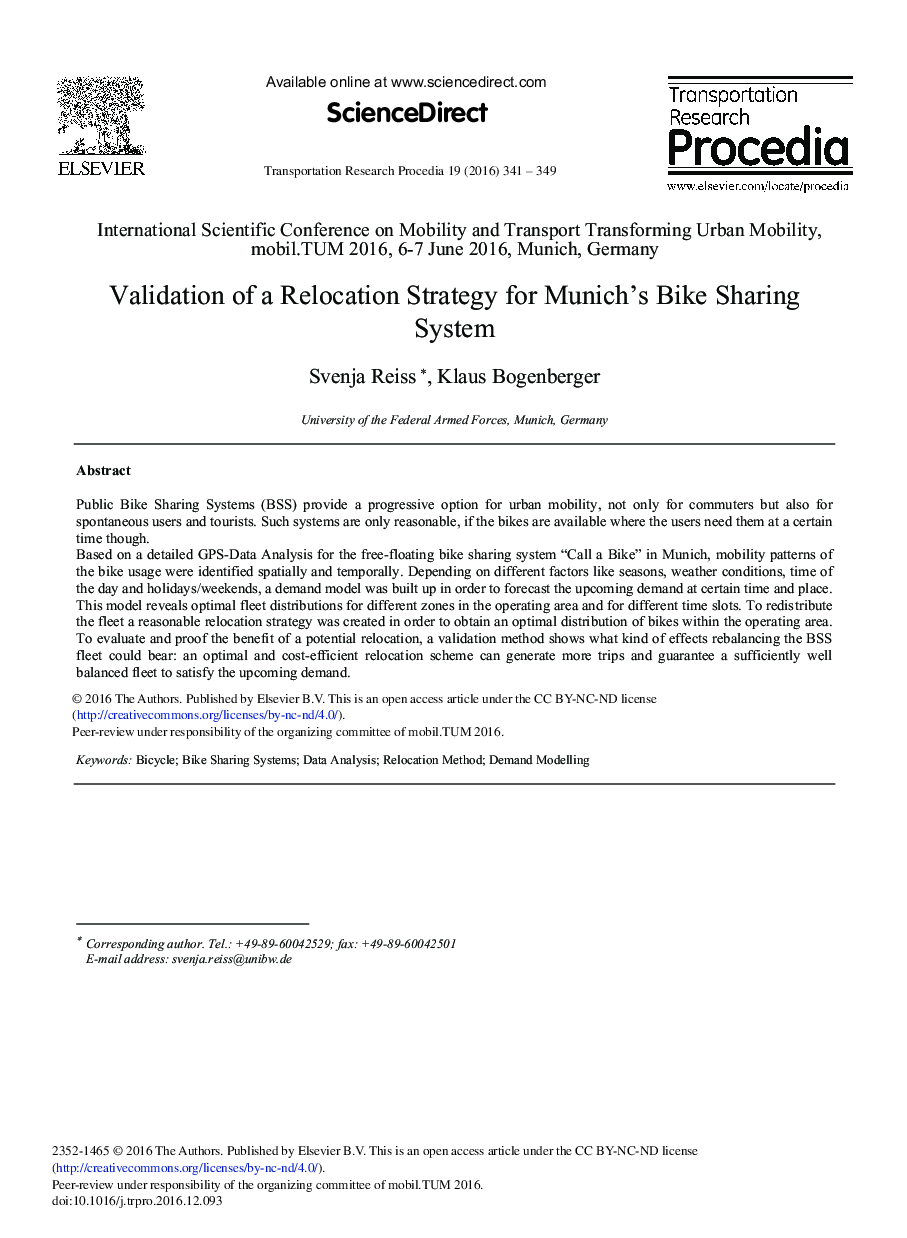| Article ID | Journal | Published Year | Pages | File Type |
|---|---|---|---|---|
| 5125486 | Transportation Research Procedia | 2016 | 9 Pages |
Public Bike Sharing Systems (BSS) provide a progressive option for urban mobility, not only for commuters but also for spontaneous users and tourists. Such systems are only reasonable, if the bikes are available where the users need them at a certain time though.Based on a detailed GPS-Data Analysis for the free-floating bike sharing system “Call a Bike” in Munich, mobility patterns of the bike usage were identified spatially and temporally. Depending on different factors like seasons, weather conditions, time of the day and holidays/weekends, a demand model was built up in order to forecast the upcoming demand at certain time and place. This model reveals optimal fleet distributions for different zones in the operating area and for different time slots. To redistribute the fleet a reasonable relocation strategy was created in order to obtain an optimal distribution of bikes within the operating area. To evaluate and proof the benefit of a potential relocation, a validation method shows what kind of effects rebalancing the BSS fleet could bear: an optimal and cost-efficient relocation scheme can generate more trips and guarantee a sufficiently well balanced fleet to satisfy the upcoming demand.
